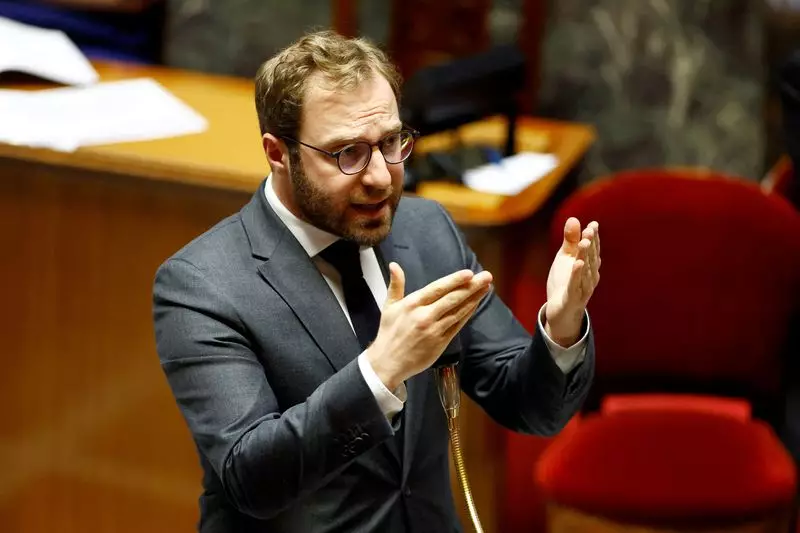France stands on the precipice of a significant political upheaval, as uncertainty envelops the nation’s budget and the stability of its government. Speaking on a national news outlet, Finance Minister Antoine Armand conveyed the gravity of the situation, warning that the country is approaching a pivotal moment. The specter of a potential collapse of Prime Minister Michel Barnier’s government looms large, casting a shadow over France’s economic landscape and its standing within Europe.
As whispers of a no-confidence vote circulate through the political corridors, the implications extend beyond mere government stability; they reverberate through France’s financial markets. Investors are responding with apprehension, as both stock and bond markets face downward pressure amidst concerns surrounding France’s burgeoning public deficit. Armand’s assertion that politicians must avoid thrusting France into further instability underlines the critical intersection between political maneuvering and economic viability.
Barnier’s government is characterized by its fragile coalition, long reliant on support from the National Rally (RN) for survival. The brewing discontent among the populace is palpable, with figures like Marine Le Pen articulating the frustrations of the French who feel sidelined by current policies. The Prime Minister is set to address the nation in an effort to stave off collapse, amidst expectations that his coalition may face imminent no-confidence motions, a scenario that, if realized, would mark a historical first since 1962.
At the heart of the crisis lies Barnier’s contentious budget plan, which seeks to curtail a spiraling deficit through substantial tax increases and reductions in public spending amounting to a staggering 60 billion euros. This strategy has ignited fierce opposition from both ends of the political spectrum, cementing the barriers against Barnier’s fiscal ambitions. With the combined votes of left-wing factions and the far-right opposition, Barnier’s budget faces an uphill battle, raising questions regarding its viability and the efficacy of his governance.
Should the no-confidence vote come to fruition, the implications for governmental continuity are profound. While Barnier would be compelled to resign, there exists a possibility that President Macron may request his continued service in a caretaker capacity, searching for a new prime minister amidst a politically charged environment. However, with parliamentary elections off the table until mid-July, the path to political resolution appears fraught with challenges.
A pressing deadline looms over the budgetary process: if parliament fails to ratify it by December 20, the caretaker government may resort to emergency legislation to prolong existing spending measures. Such a scenario could jeopardize the fiscal discipline that Barnier sought to instate, potentially undermining the savings measures integral to his plan. This precarious situation accentuates the importance of decisive political action, as France must navigate both its internal strife and external economic pressures in the coming months.
France’s current political landscape is emblematic of broader issues haunting many democracies today. As economic realities converge with political volatility, the nation’s leaders must grapple with the implications of their actions, mindful that the decisions made in this pivotal moment could shape the future trajectory of the country.

